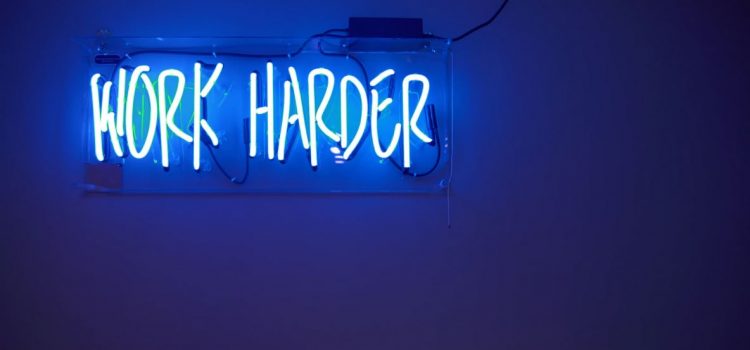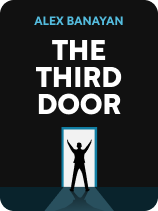

This article is an excerpt from the Shortform book guide to "The Third Door" by Alex Banayan. Shortform has the world's best summaries and analyses of books you should be reading.
Like this article? Sign up for a free trial here.
Are you just getting started in your career (or a new career)? What are you willing to sacrifice now in order to succeed in the long run?
When author Alex Banayan wanted to find out how the people at the top got there, he set out to interview them. Here’s what he learned from musician Pitbull and executive Qi Lu: Work hard today for a payoff tomorrow.
Read more to learn why you are your best investment.
You Are Your Best Investment
Several of Banayan’s interviewees emphasized the importance of working extra hard early in your career, arguing that the long-term gains you’ll earn are worth the effort and the sacrifice of short-term comfort. Two interviewees in particular who made that attitude a cornerstone of their careers were Grammy Award-winning rapper Pitbull and Microsoft executive Qi Lu. The success story of each one illustrates the concept that you are your best investment.
Pitbull: Always Be Learning
Armando Perez, better known as Pitbull, who has produced award-winning music in multiple genres and started his own charter school, told Banayan that his secret to success is his willingness to approach any new venture with the mindset of an intern: be willing to work a low-wage, low-level job to learn about an industry from the bottom up.
Pitbull argues that when you do menial tasks and function as an assistant to others, you can get a foot in the door and gain access to insights and wisdom from experienced people. Even if you’re already successful in a different field, you should be ready to start at the bottom in any new field you approach. By constantly learning in this way, you’ll ultimately be a better executive because you’ve learned how the business works at every level.
(Shortform note: Pitbull’s advice is aimed both at people starting their first career and at people successful in one career and choosing to enter a second. As such, he emphasizes the importance of being open to learning new skills, but some experts note that when starting a new venture, you can use skills you’ve already mastered to give you a leg up. In Managing Oneself, Peter Drucker encourages you to apply skills you’re already good at in new ways. For example, if you’re a corporate account manager, you can easily pivot to managing rental properties on the side. Drucker focuses on those starting second careers, but his advice can help those starting from scratch—think about what you know in other areas and apply it to your new work.)
Qi Lu: Be Disciplined
Banayan asked engineer Qi Lu, who grew up in extreme poverty in rural China but rose to hold executive positions at Yahoo, Microsoft, and other tech firms, how he was able to achieve exponential social mobility. Lu explained that he was extremely disciplined and that he sacrificed immediate comfort for long-term success.
He maintained a rigorous routine, running five miles every morning, eating small meals of fruits and vegetables throughout the day, and working 18 hours a day, six days a week. He also trained himself to sleep just four hours a night, giving him, over the course of a year, an extra two months of time (compared to people who sleep eight hours a night) with which he could learn new skills and work on projects.
He said that his discipline allowed him to get more out of his day than others, and therefore he was more prepared to jump on opportunities when they presented themselves. For example, when he was a student, a professor asked him if he’d done any research on a particular topic, and Lu was able to respond that he’d already written five papers on it. The professor was so impressed that he helped Lu apply to Carnegie Mellon, which allowed him to fulfill his goal of moving to the US and starting his career.
(Shortform note: It’s not easy to adopt challenging, strict habits like the ones Qi Lu lived by, but in Atomic Habits, James Clear argues that if you view your habits as extensions of your identity, you’re far more likely to stick with them. Clear writes that to successfully adopt new routines, you should envision the version of yourself you want to become, as this will encourage you to behave as that ideal version likely behaves. This advice aligns with how Lu approached his life: His goals reflected his desire to escape poverty, which gave him the motivation to adopt and stick to difficult habits. His image of himself as an accomplished person helped him stick to habits that set him apart from other students and put him on his path to success.)

———End of Preview———
Like what you just read? Read the rest of the world's best book summary and analysis of Alex Banayan's "The Third Door" at Shortform.
Here's what you'll find in our full The Third Door summary:
- That there are three doors in life—but most people only know about two
- Insights, tricks, and motivations to help you find your path to success
- Advice from some of the world's most successful people






